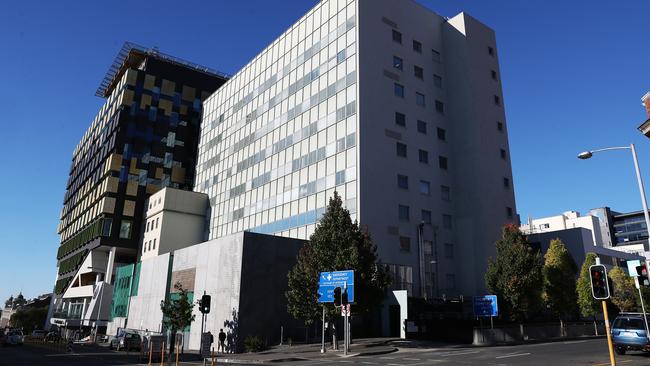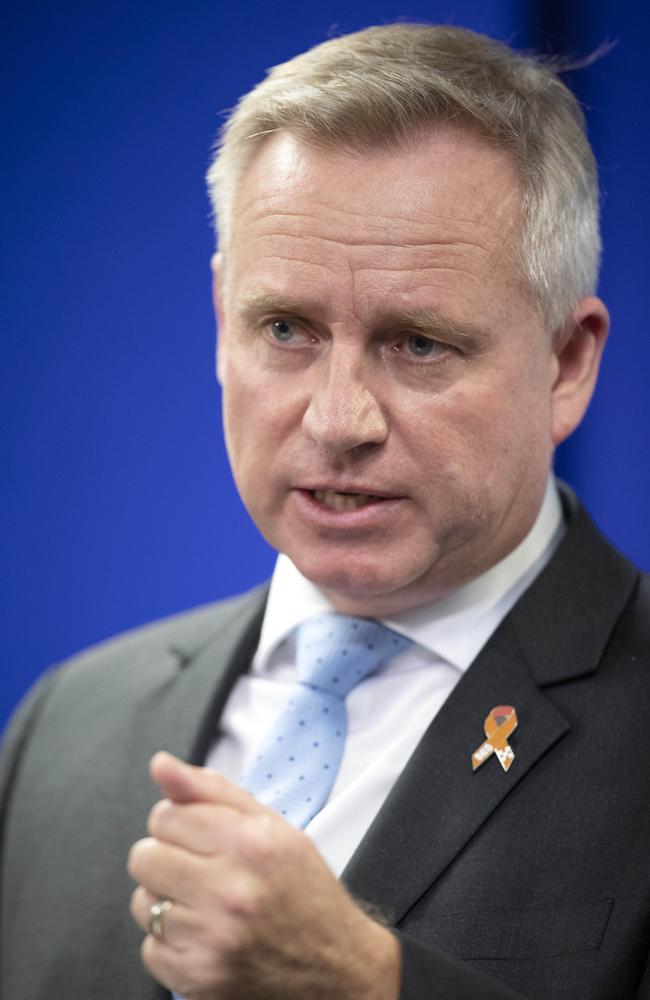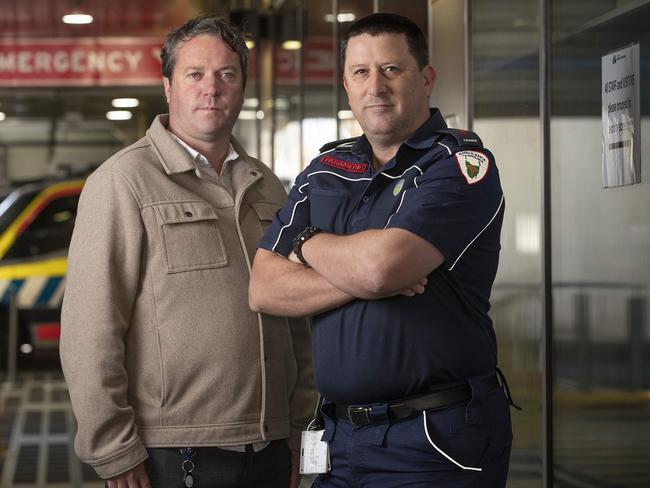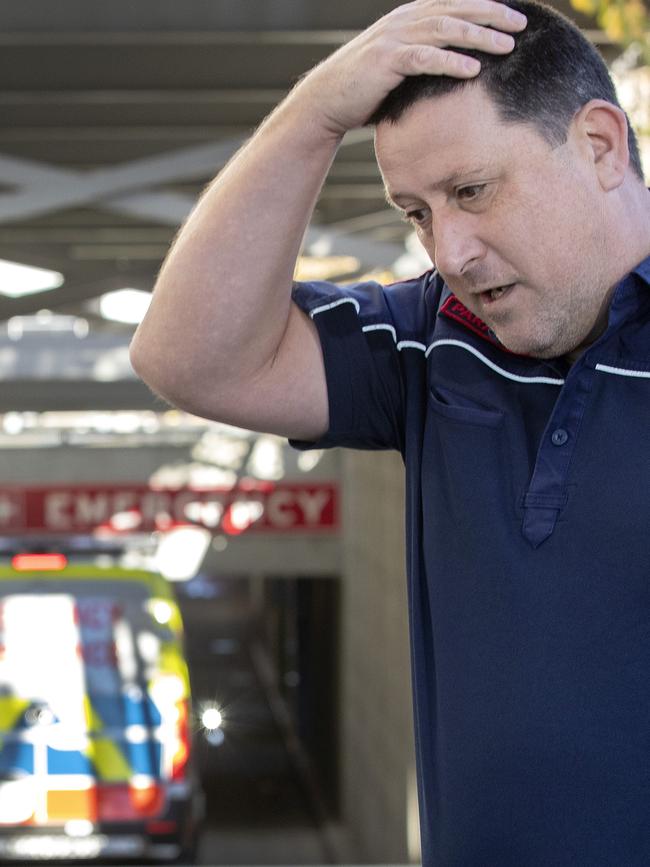A ‘fundamental failure’: Libs urged to act on ramping with expansive state budget
Tomorrow’s state budget will deliver a nation-leaded, multi-million dollar digital transformation of Tasmania’s health system “for the virtual hospitals of the future”. UPGRADES >>
Tasmania
Don't miss out on the headlines from Tasmania. Followed categories will be added to My News.
THE state government will commit $150m as the first down payment of a massive decade-long overhaul of the state’s digital health infrastructure.
Premier and Health Minister Jeremy Rockliff will on Wednesday announce the government will transform the way the state’s public and private health systems deliver patients care.
He said Thursday’s budget will include $150m over the next four years to upgrade health information technology as part of what will become a $475m project over the next decade.
The funding comes after calls from the Australian Medical Association for a technology revamp of the health system in the lead up to last year’s state election.
The doctor’s group last year called for a $400m “investment for the virtual hospital of the future”.

Fax machines — which have all but disappeared elsewhere — are still in common use in the state’s hospitals and doctor’s surgeries.
Mr Rockliff said the money would pay for a new “statewide fully integrated care platform” that will enable hospitals, GPs, community health, allied health, and other specialist providers to seamlessly communicate and share information with each other.
“In the first four years of funding, we will procure and trial a new centralised and secure Electronic Medical Record system and launch a statewide patient record viewer that connects all public and private health and care providers,” he said.
“Critically, this will improve access to up-to-date clinical information across a range of healthcare settings.

“We will also upgrade existing virtual care technologies – including telehealth – to enable more patients to receive care in their home or in their community, streamline the referral and appointment process for patients, and enhance clinical decision-making through access to advanced data and analytics.”
The government hopes the digital transformation will deliver benefits including access to convenient healthcare in local communities, improved communications about appointments, reduced waiting time for services, and less duplication and form-filling.
“It will also prevent unnecessary hospital visits, helping to keep people out of hospital when they don’t need to be there,” Mr Rockliff said.
“In doing so, the changes will free up clinicians to spend more time on clinical activities and caring for patients, and less time on administrative tasks and chasing up paperwork.”
He said the spending would make Tasmania the first Australian State with a fully integrated healthcare system “ready to meet the challenges of the future” through a single digitally connected network.
‘Derserve better’: Ambo union lashes government over ramping crisis
The state’s largest health workers’ union has slammed increasing ambulance wait times and ramping, describing the growing problem as a “fundamental failure of government”.
The Health and Community Services Union criticised Premier Jeremy Rockliff for failing to halt rising wait times since he assumed the health portfolio in April last year.
Median ambulance response times have increased from 14 minutes to 14.6 minutes over that period, while daily average ramping time has blown out from 52.3 hours to 85.2, according to Ambulance Tasmania’s monthly performance report for May.
HACSU industrial manager Robbie Moore said the report showed Tasmania’s Launceston General Hospital and Royal Hobart Hospital were the two most inefficient public hospitals in the nation.
“Tasmanians deserve better than this. This is a terrible outcome for all of us,” Mr Moore said.
“This isn’t a failure of frontline staff. This is a fundamental failure of the government to understand that patient flow needs a higher priority, and hospitals need surge capacity to deal with peak demands.”

The Tasmanian government was “simply ignoring” the growing response times that were causing premature deaths and devastating the mental health of frontline workers, Mr Moore said.
“Tasmanians should be angry that this is happening. It’s having a tremendous impact on paramedics and call takers who simply are not able to respond or send a resource because of hospital ramping,” he said.
HACSU was launching its campaign to demand the government “immediately open” more beds and pay “competitive rates” to health professionals to stop people leaving the industry or moving to work interstate, Mr Moore said.
“If we can pay rates that are competitive with the mainland that could lead to an injection of workers and mean we can open up more beds now,” he said.
“If the government doesn’t come to the party, our members will consider serious industrial action.”
Ahead of the release of the state budget on Thursday, Premier Jeremy Rockliff said his government was committed to adding more beds and increasing healthcare personnel.
“We have 243 more full-time equivalents across Ambulance Tasmania than we had in 2014 … we made a significant commitment for 48 more paramedics around Tasmania, for which 44 have already been filled over the last 12 months,” Mr Rockliff said.
“What is very important is getting that access and flow right, throughout our hospital system., and doing what we can to avoid a bed-block.”
Mr Rockliff said demands on the health system were increasing due to Tasmania’s ageing population and he would continue to push for 50-50 healthcare funding from the new federal government, along with other state premiers.
“Our healthcare system needs to continually improve … I’ll be advocating for more funding for health federally to get that balance right,” he said.

Veteran paramedic Cam Johnson said ambulance ramping was the worst he had seen in the state for the last 20 years.
“We come to work to do our job, and we don’t get to do it because we are stuck in the corridor for hours at a time,” Mr Johnson said.
“It’s very frustrating … people get stressed, they lose interest, they leave and find other careers.
“For those of us who are a little older it’s harder to find another career so we persevere, but we sometimes go to the point where we have to get help from qualified professionals to manage that stress and anger.”




